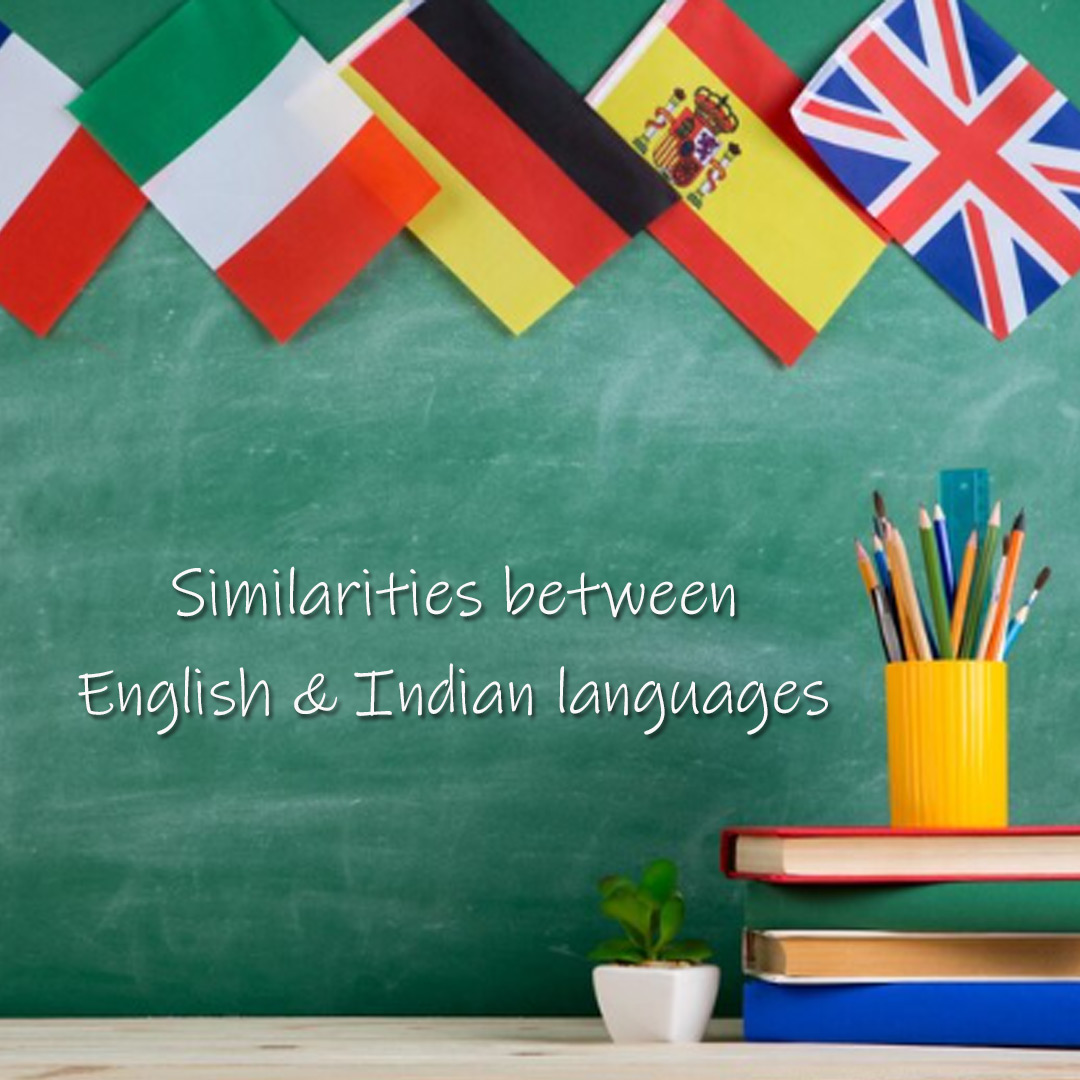Please enter the code we just sent to whatsapp 91-11-46710500 to proceed
Didn't Receive OTP?

There are 7000 living languages worldwide, out of which 12% are spoken in India. When linguistics traced the roots of English, Hindi, Greek and other Indo-European languages, they discovered that they have one common ancestor and origin dating back to 6500 years ago.
There are many common English words spoken every day by millions of people that go unnoticed. We can see many similarities between English & Indian languages, for example, Dekho, chutney, bungalow, shampoo etc. But did we ever notice what are the roots of these words? From where have they travelled and become part of our daily language?
Was not as widespread: A few centuries back, the English language was less popular than it is today. India, being a multilingual & multicultural country, lagged in proficiency in the English language. Surviving with one language in a diverse country like India was not sufficient.
Breakthrough after independence: Post-independence, vernacular languages and Hindi were mediums for education, but created a massive divide in society. Meanwhile, the English language gained ground in India due to prolonged colonialism. Many state government schools imparted education through vernacular language, but students who graduated from these schools received less higher education or job opportunities.
A major increase in demand as globalisation happened: Hence English emerged as a required skill in our country. An educated Indian with a good command of the English language could pursue higher education and have better job options and social connections. In areas like science and technology, English was gaining a global position, and to build a modern and glorious India, hence English was introduced as a second language.
The similarities in Grammar & vocabulary between Greek, Latin and Sanskrit are noticeable. Since they share a common ancestral language, many words are often adopted or loaned. The borrowing words are adopted from the source language and translated to the native language. Over the centuries, the pronunciation changed when the language travelled to different regions by adding or removing a few letters. For example, father in English, pitar in Sanskrit and pater in Latin & Greek.
|
Greek |
English |
Indian languages |
|---|---|---|
|
κρόκος- |
Crocus |
Kunkumam (Sanskrit) |
|
zingiberis |
ginger, gingiber |
inchi (Tamil) |
|
νάρδος nardos |
nard |
nalada (Sanskrit) |
|
ὀπάλλιος opallios |
opal |
upala (Sanskrit |
|
orenge |
orange |
narang (Sanskrit) |
|
piper |
pepper |
pippali (Sanskrit) |
|
ὄρυζα oryza |
rice |
vrihi (Sanskrit) |
|
σάκχαρον |
saccharide |
sarkara (Sanskrit) |
|
σανδάλιον sandalion |
sandalwood |
Chandana |
|
σάπφειρος sappheiros |
sapphire |
sanipriya |
Avatar – human incarnation, bandana- bond, bangri- bangles, bangla -bungalow champo – shampoo, curry, chit -chitti, chutney, dacoit - daku, dingy, guru, juggernaut (Odia -Jagannath yatra), karma, kismet, loot, masala, maharaja, pundit, pariah, thug, verandah…..
Conclusion
In modern India, English language proficiency has become an important landmark for personal & professional growth. The ability to speak and write in English provides a competitive advantage. With advancements in technology, computer programmes, artificial intelligence, etc, the future of English looks strong. Globally, English has become the most preferred language. With the advent of online platforms, people have preferred enrolling in online English classes to enhance their communication skills.. 1:1 English classes provide a simple and excellent opportunity for learning the nuances of the English language under the mentorship of skilled teachers. Nowadays, English has emerged as a unifying force that brings everything under one umbrella.
Q. What difficulties are faced by non-native speakers in learning English?
Ans:. English is complex, and mastering all its nuances is challenging for non-native speakers. Different stresses and sounds in pronunciation are tricky, and using Grammar and vocabulary in various contexts is challenging.
Q. Which language learning resources are easier to find – Hindi or English?
Ans:. In the modern digital world, English resources are readily available. Books, apps, websites, and courses can be accessed anywhere, whereas Hindi learning resources are limited.
Q. What is IAST?
The International Alphabet of Sanskrit Transliteration is a Romanization system for translating Hindi. The diacritic-based system uses Latin characters and diacritic marks to explain Hindi sounds.
Shape Your Kid's Future with Bambinos Classes | Bambinos.live India's No. 1 English Communication Platform For Kids | Book a Free Class Now